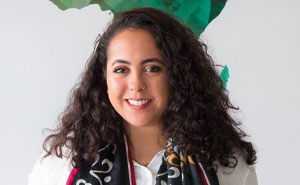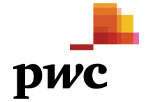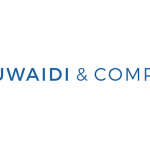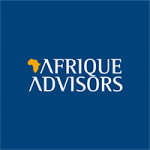Afrique Advisors on cryptocurrencies in the Kingdom of Morocco
‘It is a question of when, not if. Cryptocurrencies represent the future and should be regulated.’1 In a context where the regulation of cryptocurrencies is still under construction, Morocco is seeing the gradual emergence of a potential legal framework in this area.
Since 2017, the statements made by several regulators portray Morocco as a country where the use of crypto-currencies is formally prohibited and constitutes a violation of the country’s foreign exchange regulations.
This image contrasts vigorously with the fact that, according to US research firm Chainalysis’ Report,2 the Kingdom not only ranked 24th in the world in the use of virtual currencies in 2021, but further ranked 4th in Africa, with a peer-to-peer crypto trade volume of US$6m exchanged, and first in North Africa. Data clearly illustrates that Moroccans have never stopped being active in the crytposphere, despite the conservative approaches originally taken by the authorities.
In the aftermath of the publication of the report, Moroccan regulators launched a debate across both the legislative and executive branches to regulate the developing sector, according to the Minister of Finance.3
Thus, although cryptocurrencies attract more and more followers in the Kingdom, it is important to emphasise that Moroccans currently handling cryptocurrencies are operating in a risky environment due to a major legal vacuum in this area, creating numerous jurisprudential divisions as a result of the original conservative stance taken by the authorities (1). However, in the face of its continuous growing development and the many stakes involved, the regulators remain open to an attempt to insert these new technologies in the Moroccan legal framework (2) and the authorities are also intensifying their efforts to make room for blockchain projects for professional or institutional use in order to put the blockchain at the service of financial inclusion (3).
I. The absence of any specific regulation pertaining to cryptocurrencies in Morocco
The Foreign Exchange Office (FEO) and the Ministry of Finance informed the public in a 2017 press release that ‘transactions carried out via virtual currencies constitute an infringement of foreign exchange regulations, subject to penalties and fines provided by the texts in force’. The regulator also urged ‘those concerned to comply with the provisions of the foreign exchange regulations which provide that financial transactions with foreign countries must be made through authorized intermediaries and with foreign currencies listed by Bank Al-Maghrib’ (BAM, the Moroccan Central Bank).4
The following day, the Ministry of Finances, BAM and the Moroccan National Capital Market regulator (AMMC) issued a press release in which they ‘warn the public about the use of this instrument as a means of payment’ as they are not regulated nor recognised by the monetary authorities and drawing ‘the public’s attention to the risks associated with the use of virtual currencies’, including the lack of consumer protection, the lack of regulatory protection to cover losses in case of failure of the exchange platforms, the lack of a specific legal framework to protect users of these currencies in relation to the transactions carried out, the volatility of the exchange rate of these currencies, the use of these currencies for illicit or criminal purposes, and finally, the failure to comply with the regulations in force, in particular those relating to the capital markets and foreign exchange legislation.5
It is important to emphasise that Moroccans currently handling cryptocurrencies are operating in a risky environment due to a major legal vacuum in this area, creating numerous jurisprudential divisions as a result of the original conservative stance taken by the authorities.
The statements, originally intended as simple warnings and recommendations6, were quickly interpreted as a ‘ban’ on cryptocurrencies, effectively extending to these assets the foreign exchange regulations that only allows Moroccans to hold accounts abroad under certain conditions and which provides that only currencies that are legal tender and recognised by the Central Bank can be used as a means of payment. Such interpretation was based on an interpretation of article 339 of the Penal Code which punishes ‘the manufacture, issue, distribution, sale or introduction into the territory of the Kingdom of monetary signs whose purpose is to substitute or replace legal tender’, an offence punishable by imprisonment of one to five years and a fine of 500 to 20,000 dirhams. This view is also supported by another press release jointly published by the financial regulators in 2022.7
This warning, as explained by the Governor of BAM in 2019, came at a time when international organisations, and in particular the IMF, had the same position.8 However, taking into consideration the technological and financial developments in this field, Morocco has adapted its digital roadmap to include cryptocurrency as part of this reflection.
Such positions taken by the authorities have already greatly impacted the decisions taken and divided the judiciary in the course of the 20 prosecutions involving the use of cryptocurrencies recorded between 2019 and 2021.
While transactions made in crypto-currencies are subject to criminal prosecution, the lack of a clear legal framework governing their use greatly impacts many cases, the outcome of which remains at the discretion of judges and their interpretation of the provisions of Moroccan law. In June 2020, the Public Prosecutor Office addressed the issue in a study highlighting that the contradictory positions of the Kingdom’s courts in the judgment of crypto-currency cases are mainly due to the nature of the said crypto-currency retained by the judges.9 Those who consider it a currency in its own right rely on the Foreign Exchange Code and article 339 of the Penal Code to incriminate the defendants,10 while those who do not consider it a currency rule that crypto-currency transactions do not constitute a crime in the absence of an explicit criminal text, pursuant to the principle of nullum crimen, nulla poena sine.11
In this context, since 2019, studies have been launched on how to best address these challenges from a legal perspective, and considering their forecasted impact on the Moroccan legal framework, Bank Al-Maghrib created a commission to examine the situation in detail with a view to regulating the practice. It is, in fact, one of the priority projects of BAM’s strategic plan for the period 2019-2023. Furthermore, as part of their report on financial stability for the year 2020, the regulators have assured that they are working to define a mechanism to regulate the use of crypto-assets and private crypto-currencies (stablecoins).12
II. Cautious opening of regulators’ positions towards cryptocurrencies
Morocco is showing signs of change. While the grave tone of the regulators in 2017 has gradually lowered, the conservative stance remains the official policy, but their positions still pave the way for a potential inclusion of cryptocurrencies in Moroccan legal framework through various initiatives.
Indeed, a slight opening had already been initiated when in November 2019, BAM announced considering the idea of a Moroccan virtual currency based on blockchain technology during the second edition of the Africa BlockChain summit.13 A reflection is thus initiated on the issue of central bank digital money (CBDM), a digital form of fiduciary money issued, controlled and regulated by the Central Bank.
In this context, an inter-authority working group was set up in 2018 to study the implications of the development of these crypto-assets on the missions of regulators, to draw up an overview of their use cases and to keep a watch on regulatory developments in this area.14
The Governor indicated that he did not close the door to innovative solutions, considering that the Kingdom looking to benefit from the contribution of fintech as part of the implementation of its financial inclusion strategy.15
BAM’s whole strategy in crypto-assets is therefore to be well prepared for the day when these issues related to the risks involved in the use of crypto-assets are resolved, and an international consensus around a legal framework is reached as they do not want there to be a divide between Morocco and the developed countries in this area.
Communication campaigns, awareness and training will also be conducted. A task that will be tedious in a country still very attached to the cash culture. But calls for the modernisation of its economy have been pushing Morocco for several years to liberalise the capital market, at the insistence of the IMF.
On 10 January 2022, questioned during a parliamentary session, the Minister of Finance, while recalling the regulators’ recommendations, stressed that the government is working with its partners to study the interest of a legal framework for these cryptocurrencies.16
While transactions made in crypto-currencies are subject to criminal prosecution, the lack of a clear legal framework governing their use greatly impacts many cases.
The implementation of this new legislation would enable the tapping into the immense potential that crypto-currencies are likely to offer. The country would benefit directly from this new legal framework, both in terms of legal protection, but also in terms of economic expansion. The development of a regulatory framework would signal Morocco’s commitment to supporting the advancement of these technologies and fostering innovation in this sector.
III. Favourable framework for the development of blockchain technology
The authorities are also intensifying their efforts to make room for blockchain projects for professional or institutional use in order to put the blockchain at the service of financial inclusion and digital development. Indeed, cryptocurrency is only one of the applications of the blockchain process. While pending regulation of cryptocurrencies, the regulators seem favourable to blockchain initiatives, provided they remain private. The measures taken in this context are evidence of an evolution in the Kingdom since their 2017 first statements.
Notably, a Moroccan state-owned private company, global leader in the phosphate fertilizer market, was in 2021 the first African company to execute an intra-African trade transaction using blockchain technology: a $400m transaction with the Trade and Development Bank of Eastern and Southern Africa to finance the shipment of phosphate fertilizers from Morocco to Ethiopia. With the current slowdown in global logistics and supply chains, trade finance transactions can take weeks, due to border and airport closures. Yet, the blockchain technology allows all stakeholders to complete the transaction digitally and complete the import-export transaction in less than two hours, whereas equivalent ‘paper’ transactions typically take three weeks or more to complete due to the time it takes for suppliers to transfer physical documents to the buyer via the traditional banking system.17
This comes at a time when the decline in the use of cash has accelerated in recent months against the backdrop of the Covid-19 crisis, while digital payments have experienced very significant growth and digital currencies and crypto assets are playing an increasing role in the financial markets.
Having already used blockchain technology in its operations, Morocco will be able to use this technology in many projects. However, the challenge of Bank Al-Maghrib raises the question of the promotion of a technology that remains difficult to dissociate from cryptos.
IV. A way forward de concert with several other central banks’ initiatives
The Moroccan initiatives taken towards the conceptualisation of a CBDC are in line with the steps taken by several central banks, as China’s central bank is already experimenting with a ‘digital yuan’ or ‘e-yuan’18 and as the Governing Council of the European Central Bank (ECB) decided in 2021 to launch the investigation phase of a digital euro project.19 In the same vein, Sweden, is also well advanced in the creation of its CBDC through a pilot project launched in February 2020 by the Swedish Central Bank, aiming for the country to have its own digital currency by 2026.20 Moreover, Lithuania was also the first European country to launch its CBDC allowing transactions on the private blockchain of the Bank of Lithuania and on the public blockchain NEM.21
Some African countries, such as South Africa and Ghana22, are also conducting CDBC related studies and reflections to support their ambition to move to a cashless economy and achieve financial inclusion. The aim for the Central Banks of the continent and emerging markets is to use fintech in order to overcome issues related to the delay and cost of financial transactions and make them more accessible to their unbanked citizens through this technology. Morocco would greatly benefit from integrating such technology in its economy and financial inclusion strategy.

Laila Slassi, partner

Maroua Alouaoui, associate
- Press briefing by the Governor of Bank Al Maghrib dated 22 March 2022. Available at https://video.ibm.com/live-BKAM, minute 53:30 (last accessed 12 April 2022)
- The 2021 Geography of Cryptocurrency Report by Chainalysis, page 118. Available at https://www.mchain.uk/wp-content/uploads/2021/11/reportMC.pdf (last accessed 12 April 2022)
- Press article from Hesspress dated 19 January 2022, entitled ‘Cryptocurrency in Morocco: Investors remain divided over upcoming legislation’ by Ms Khouloud Haskouri. Available at https://en.hespress.com/34483-cryptocurrency-in-morocco-investors-remain-divided-over-upcoming-legislation.html (last accessed 12 April 2022)
- Foreign Exchange Office and Ministry of Finance press release dated 20 November 2017. Available at https://www.oc.gov.ma/sites/default/files/2018-05/communique%CC%81%20monnaies%20virtuelles%20fr.pdf (last accessed 12 April 2022)
- Ministry of Finance, AMMC and BAM press release dated November 21, 2017. Available at https://www.ammc.ma/sites/default/files/communique%20monnaies%20virtuelles%20FR_0.pdf (last accessed 12 April 2022)
- Opening statement of Bank Al Maghrib’s Governor at the Africa Blockhain Summit in 2019, minute 21:38. Available at https://www.youtube.com/watch?v=vFUuPWovyNA (last accessed 12 April 2022)
- Press release of the financial authorities dated April 5, 2021. Available at : https://www.ammc.ma/sites/default/files/CdP_Crypto_050422_fr_ff.pdf (last accessed 12 April 2022).
- Opening statement of Bank Al Maghrib’s Governor at the Africa Blockhain Summit in 2019, minute 25. Available at https://www.youtube.com/watch?v=vFUuPWovyNA (last accessed 4 April 2022)
- Press article from Médias24 dated January 19, 2022, entitled ‘bitcoin makes its way into the Moroccan courts’ by A.E.H, available at https://medias24.com/2021/01/13/le-bitcoin-fait-son-entree-dans-les-tribunaux-marocains/ (last accessed 12 April 2022) and the review of the Public Prosecutor Office of June 2020, page 65. Available at http://www.pmp.ma/wp-content/uploads/liensutiles/revueversionectronique.pdf (last accessed 12 April 2022)
- Decision of the Tribunal of first instance of Kénitra dated February 25, 2019, file n° 18-1250 (unpublished).
- Decision of the First instance tribunal of Marrakech n°7929 dated 3 October 2017 (unpublished)
- Financial Stability Report 2020 released by the financial authorities, Number 8, page 13, available at https://www.ammc.ma/sites/default/files/RSF%20n%C2%B08_Exercice%202020.pdf (last accessed 12 April 2022)
- Opening statement of Bank Al Maghrib’s Governor at the Africa Blockhain Summit in 2019, minute 23:55. Available at https://www.youtube.com/watch?v=vFUuPWovyNA (last accessed 12 April 2022)
- Bank Al Maghrib’s 2018 Annual report on financial market infrastructures and payment instruments, their supervision and initiatives, page 6, available at https://www.bkam.ma/content/download/675889/7751512/RSMPIF%202018.pdf (last accessed 4 April 2022)
- Opening statement of Bank Al Maghrib’s Governor at the Africa Blockhain Summit in 2019, minute 27:45. Available at https://www.youtube.com/watch?v=vFUuPWovyNA (last accessed 12 April 2022)
- Press article from Challenge dated January 11, 2022, entitled ‘Crypto. Morocco on track to regulate virtual currency transactions’ by Ms. Siham Azeroual. Available at https://www.challenge.ma/crypto-le-maroc-en-voie-dencadrer-les-transactions-de-monnaies-virtuelles-230478/ (last accessed 12 April 2022)
- Press release by OCP Group dated 30 March 2021, available at https://www.ocpgroup.ma/fr/press-release-article/la-trade-and-development-bank-le-groupe-ocp-et-dltledgers-propulsent-le (last accessed 12 April 2022)
- Press article from Time, dated August 21, 2021, entitled ‘How China’s Digital Currency Could Challenge the Almighty Dollar’ by Mr. Charlie Campbell available at https://time.com/6084146/china-digital-rmb-currency/ (last accessed 12 April 2022)
- Press release by the European Central Bank dated July 14, 2021, available at https://www.ecb.europa.eu/press/pr/date/2021/html/ecb.pr210714~d99198ea23.en.html (last accessed 12 April 2022)
- Bloomberg article dated April 15, 2021, entitled ‘Sweden’s Central Bank May Have a Digital Currency in 5 Years’ by Niclas Rolander and Rafaela Lindeberg, available at https://www.bloomberg.com/news/articles/2021-04-15/sweden-s-central-bank-may-have-a-digital-currency-in-5-years (last accessed 12 April 2022)
- Press release of Lietuvos Bankas (Lithuanian Central Bank) dated July 23, 2020, ‘Bank of Lithuania issues LBCOIN – the world’s first digital collector coin’ available at https://www.lb.lt/en/news/bank-of-lithuania-issues-lbcoin-the-world-s-first-digital-collector-coin (last accessed 12 April 2022)
- Press article from Bloomberg entitled ‘Are Central Bank Digital Currencies the Key to Unlocking Financial Inclusion in Africa?’ dated March 3, 2022, by Iftin Fatah, available at https://www.cnbcafrica.com/2022/are-central-bank-digital-currencies-the-key-to-unlocking-financial-inclusion-in-africa/ (last accessed 12 April 2022)














